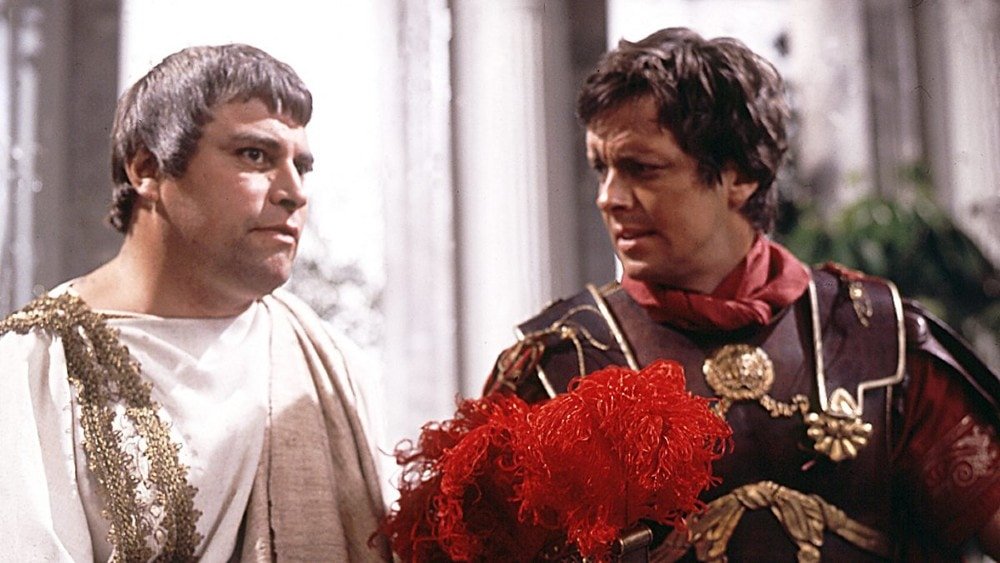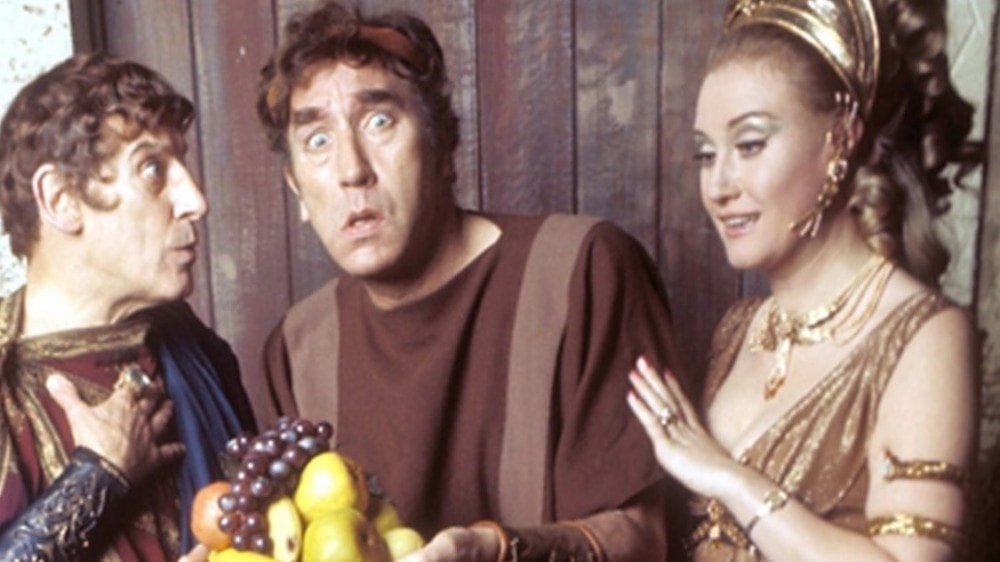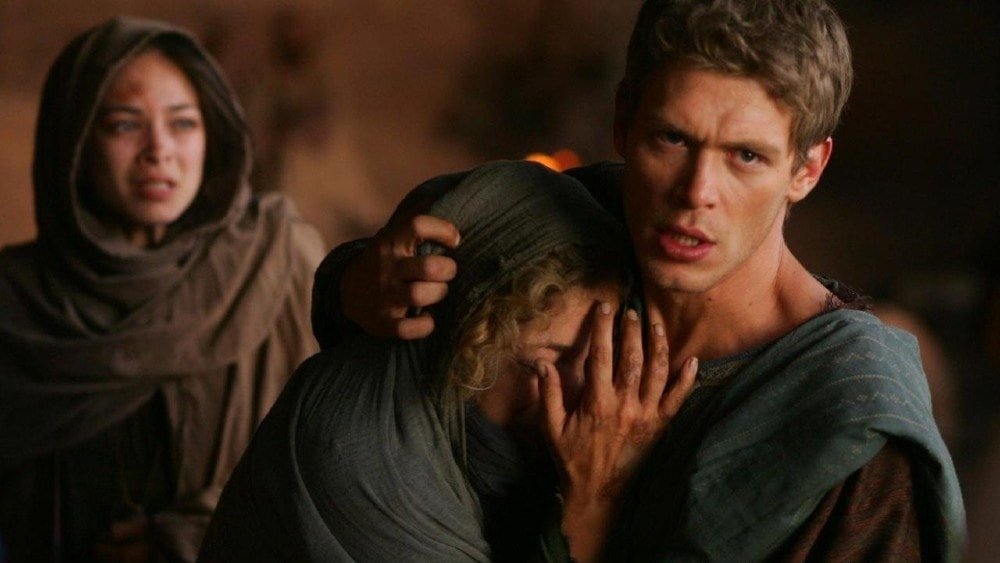
Depending on which end of the social spectrum you were on, life in the ancient Roman Empire could have gone one of two ways.
If you were amongst those in the middle and upper echelons, you might have been enjoying the company of emperors and senators while watching gladiator battles from the comfort of the bleachers.
On the other hand, if you were amongst the poor – perhaps from one of the many, many places they conquered – you would likely have ended up a slave or a criminal, or even fighting in one of the gladiator battles.
As a man in Ancient Rome, you’d have a lot of power – within the household, society in general, and in politics. But did you know that even the women during that time held quite a bit of power as well?
Women held equal power within the household, had relative freedom, and were respected and honored in society.
Of course, legal rights are a whole other story and ultimately, it was still the patriarch that held absolute control over the family (funny how all these centuries later and not much has changed with that, huh).
While we do know a fair bit of what Ancient Rome was like, there’s no doubt that there are still some holes and inconsistencies in historical accounts. That’s where fiction comes in to help us bridge these gaps.
When certain events or people are hazy on the details (or just plain uninteresting), artistic license allows creators to tie stories together with their own interpretation of it.
Sure, that might mean that some of the actual facts get lost in translation, so to speak, but at least it’s never boring!
Detailed below is a list of TV shows set in Ancient Rome and hopefully, they can provide a general idea of what life was like way back then from various perspectives.
From the life of the Roman royalty to the behind-the-scenes of gladiator fights, these shows have it all!
Spartacus, Starz (2010 – 2013)

Though a fictionalized account, the Starz historical drama Spartacus does tell of a real historical event called The Third Servile War.
The series starts with a background on the titular character Spartacus, who actually doesn’t gain that name until later on.
At first, he’s unnamed, a Thracian who leads a mutiny against the Roman officer leading their civilian army. As punishment for his crime, he is taken to a gladiator arena to fight and die – only to unexpectedly slay all four gladiators sent to execute him.
This earns him the name of Spartacus, as well as a place in the gladiator training school. However, his forced killing of a good friend in the arena leads him to raise arms and lead a rebellion against the house that he fought for.
The Spartacus series spanned four seasons, with this first one subtitled as Blood and Sand.
Chronologically, the third and fourth seasons (Vengeance and War of the Damned, respectively) follow the events after Blood and Sand. However, let’s talk about the second season, shall we?
Spartacus: Gods of the Arena, Starz (2011)

As mentioned, the Spartacus series franchise had multiple seasons, each with its own subheading. Spartacus: Gods of the Arena is the second season but unlike those that came after it, it serves as the prequel to Blood and Sand.
In it, we learn a little bit more about the city of Capua, where Spartacus was later transported to for the gladiator battle.
We’ll also see the return of some familiar faces from the pilot season, and learn a little about their history and background before Spartacus entered their lives.
On top of that, Gods of the Arena focuses on Gannicus, the former gladiator champion of Capua, and his rise to the top, where he eventually earns his freedom.
Rome, HBO/BBC Two/ Rai 2 (2005 – 2007)

We can always have high expectations when it comes to HBO series’ because they really are all exceptional, and the two-season historical drama Rome is certainly no exception.
Amidst positive ratings and reviews, the show received numerous accolades from the Emmy Awards and the Primetime Emmy Awards, not to mention many more nominations.
Rome is set against the backdrop of a pivotal time in its history: the transition from a republic to an empire.
While it shows how this affected the lives of the rich and powerful, it also followed the story of two Roman soldiers whose lives intertwined with and impacted these historical events – portrayed with some artistic license, of course.
These inaccuracies, however, are due to the creators’ desire to depict something more authentic rather than strictly accurate.
I, Claudius, BBC 2 (1976)

Now, this is a series that I would definitely binge-watch were it ever to be remade – though it would be pretty hard to step out of the successful shadow of this original!
I, Claudius is an adaptation of two historical novels written by Robert Graves: the titular I, Claudius, and its sequel, Claudius the God.
The events recounted in it are still chronologically accurate and start with Augustus’ reign as the first Emperor of Rome. From there, it traces the succession of emperors and how they came to power until finally, we reach Claudius’ reign.
What sets this series apart from other similar ones is the format in which the story is told: I, Claudius is narrated by an elderly Claudius so his storytelling is interspersed with unique (fictional, of course) perspectives on the empire and his hopes to return to a republic.
Plebs, ITV2 (2013 – 2019)

As a little breather from all the seriousness of the list so far, we’re bringing you ITV2’s successful historical comedy, Plebs.
The show follows Marcus and Stylax, two young men fresh from the provinces and new to the life and style of Ancient Rome. They live a decent life as “plebs” (a colloquial term for plebeian), or those in the non-aristocratic working class.
Plebs chronicles their everyday lives from dealing with their slave Grumio and his attitude problems, tiptoeing around their high-strong boss at the grain company, and interacting with their Briton neighbors Cynthia and Metella.
The uniqueness and hilarity of Plebs come from their use of a modern soundtrack and parlance throughout the show – it’s like watching our own contemporary struggles pan out in Ancient Rome!
Up Pompeii!, BBC1/ITV (1969 – 1970)

We’re keeping the comedic vibes going (albeit taking it waaaay back in time) with Up Pompeii!, a British comedy series that aired at the dawn of the 70s.
The story of Pompeii and the eruption of Mt. Vesuvius is one of the more well-known events in the history of Ancient Rome, and it serves as one of the comedic backbones of this series.
Up Pompeii! is set pre-eruption and follows the slave Lurcio as he follows around his master Ludicrus Sextus and his wife, Ammonia.
Alongside Lurcio’s risque and witty commentary of double entendres, his breaking of the 4th wall, and hovering awareness that they are in a scripted show are constant warnings of impending doom from Senna the Soothsayer – which they probably should have heeded!
Romulus, Sky Italia (2020 – present)

Romulus is a captivating historical drama that chronicles the founding of Rome and the lives of its early inhabitants.
Produced by Sky Italia, Romulus is set in the 8th century BCE and follows the struggles and conflicts of the tribes that lived in the region, including the Romans and the Sabines, as they battle for survival and dominance.
Through stunning cinematography and meticulous attention to detail, the show explores the mythology and legends that surround Rome’s creation.
Britannia, Sky Atlantic/Prime Video/Epix (2018 – present)

So far, all of the shows we’ve listed are told from the viewpoint of the Romans – if not from a Roman protagonist then at the very least set primarily against the backdrop of that civilization.
Well, Britannia – if you couldn’t tell from the title alone alluding to a different place entirely – provides a slight change of pace.
Yes, the show is set during the peak of the Roman Empire; in fact, it’s the very fact that the empire was expanding that sets the pace for the show.
Britannia is a historical fiction series told from the perspective of the tribes and Druids of Britain – warring groups who are forced to come together to fight against their common enemy: the invasion of the Roman Empire.
Barbarians, Netflix (2020 – present)

Similarly, Barbarians is a thrilling historical drama series that focuses on the perspectives of those on the other side of the battlefield.
Produced by Netflix, the show delves into the Battle of the Teutoburg Forest, the epic clash between the Roman Empire and the Germanic tribes in the 1st century AD that humiliated the Roman army.
The series tells the personal stories of the Germanic warriors and their leaders as they attempt to resist the power of the Roman legions.
In particular, we focus on Arminius, a German-born Roman officer who betrayed his Roman upbringing and united the Germanic tribes to fight against the Roman forces.
The Caesars, ITV (1968)

In many ways, The Caesars steps within the same historical boundaries as I, Claudius, which we mentioned a little earlier in this list.
In fact, the timeline is the same; each episode in this ITV miniseries details the reign of one emperor of the Roman Empire, beginning with Augustus after the fall of Julius Caesar and ending with Claudius.
Given this format, viewers are able to understand what each emperor was able to contribute to the empire, as well as how vastly different they were as leaders.
Tiberius and Caligula are known to have reigned with chaos and tyranny, while Augustus and Claudius’ leadership was quite the opposite. The Caesars allows us this perspective into the times of the early empire.
Domina, Sky Atlantic (2021)

Domina is a limited historical drama series made for Sky Atlantic in Italy and the UK, and it’s also the most recently premiered show on our list, having just premiered this May 2021!
On top of that, we are finally getting a glimpse into a notable female figure in the history of Ancient Rome. That’s right, Domina tells the story of Livia Drusilla, one of the empresses of the early empire as she became the wife of Augustus, the empire’s first Emperor.
Even after his death, she held significant influence over politics as the new emperor’s mother. Thus, Domina chronicles her early life following Julius Caesar’s assassination and her succeeding rise through the ranks.
Empire, ABC (2005)

A lot of the shows on our list trace the history of the early Roman Empire, telling the story of the first few emperors and how the empire expanded from there.
However, ABC’s six-episode miniseries Empire focuses more specifically on events leading up to the switch from republic to empire, particularly through the lens of Octavius (later on the Emperor Augustus).
At the onset, we witness the death of Julius Caesar and Octavius’ being named as his successor, but the majority of the series goes on to detail his struggles against Marc Antony to secure his hold on the throne.
While the entertainment factor in Empire is high, it’s also important to note that historical accuracy did take a bit of a backseat here.
Masada, ABC (1981)

In a similar grain to Britannia, ABC’s four-episode miniseries Masada, which aired all the way back in 1981, tells yet another aspect of the Roman Empire’s expansion through the opposing lens; that is, from the perspective of those being conquered.
The title of the series hints at what it’s about already: the siege of the Masada citadel in Israel, which was known to be an impenetrable fortress atop a mountain.
Though fictionalized, Masada does go back and forth between the Jewish defenders of the citadel and the Roman army seeking to infiltrate it so as to provide a complete picture, ending with the success on the Roman side.
Roman Mysteries, BBC One/CBBC (2007 – 2008)

Roman Mysteries from BBC One and CBBC (the arm of BBC dedicated to children’s programming) was an international success, though it sadly only lasted for two seasons.
Catering to a younger audience, Roman Mysteries was based on Caroline Lawrence’s series of historical novels and was the perfect show to introduce kids and adolescents to the joy of ancient Roman history – minus all the violence and gore that usually accompanies it.
It followed the adventures of four young children as they explored the mysteries of Ancient Rome, occasionally running into notable historical figures (like Emperor Titus) and becoming embroiled in real-life events of the time (starting with the eruption of Mount Vesuvius!).
Ben Hur, CBC/ABC (2010)

In the true spirit of miniseries, the 2010 adaptation of Lew Wallace’s novel Ben-Hur: A Tale of the Christ, entitled simply Ben Hur, spans just two episodes of about 90 minutes each.
There have been many adaptations of the novel over the years, though this is the first dedicated series.
The show tells the story of its titular character Ben Hur, a wealthy Jewish merchant who is caught up in the war between the Roman Empire and Judea.
To further complicate things, one of the Roman officers in the charge against his home happens to be a childhood friend, pitting them against each other in the middle of a pivotal moment in both their nations’ histories.